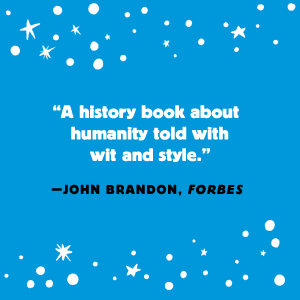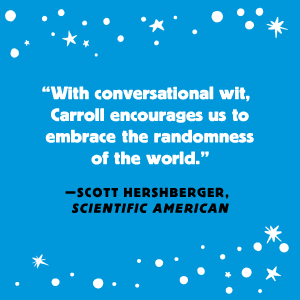معلومات عنا
حقوق الطبع والنشر © 2024 Desertcart Holdings Limited
Desert Online General Trading LLC
Dubai, United Arab Emirates


A Series of Fortunate Events: Chance and the Making of the Planet, Life, and You




B**S
Comprehensive, well written, engaging
Just right for curious more or less layperson, excellent graphics
D**S
Engagingly readable, but which audience?
This effectively short book (relatively few words per page) is based around a handful of long vignettes. An "evolution" theme: the dinosaur extinction via chance asteroid collision allowed mammals to expand; random mutations as starting ingredients for long-term evolution by natural selection; and the claim that the ice age climate fluctuations (claimed in turn as an incidental consequence of continental drift) was a driver of the evolution of human intelligence (both those claims are in fact scientifically debatable). And a "medical" theme: the immune system production of antibodies is driven by its own rapid process of random mutation; the role of different types of mutations, over a lifetime, driving cancer incidence. Finally a cleverly creative imaginary "conversation about chance" between interesting real individuals (from Eric Idle to Kurt Vonnegut).The stated theme of the book is:"It is almost trivial to claim that the world is the way it is or that we are here because of a long chainof chance, albeit fortunate, events. The explanatory power I seek comes from specificity.It is essential to unpack some of those events to appreciate how they shape the direction of life."These specifics are explained in clear and engaging style -- around the middle of the spectrum (gee-whiz to ponderous academic) of popular science writing. And are loosely matched with little stories about individuals.However I'm unsure of the target audience. Those who have read considerable popular science will have seen several of these 5 main topics before. For others, maybe brief discussions of 50 such events would be more convincing about the extent of chance in the Making of the Planet, Life, and You.The topic of this book relates to one of the greatest unsolved questions in science, the Fermi Paradox -- why don't we see evidence of extraterrestrial technological civilizations? (see Steven Webb's "WHERE IS EVERYBODY? for a popular account). One common suggestion is that in fact the initial probability of such civilization emerging on Earth was very very small. But this Big Picture question isn't addressed -- to me a curious omission.
P**.
This Book Expands One’s Understanding
I am a 2 year college graduate, know basics of Science and sometimes go out and view the seen Universe with a telescope. I have on a multitude of times wondered about the information Sean Carroll has opened the door with this book. Thank you Sean, wonder has increased and I am fascinated by your skill writing in such a fashion, an undereducated guy like me can be so enlightened. I was prompted to read this book, seeing you in an interview on FFRF.
C**O
Interesting Information
Interesting information about chance occurrences and trivia about rare and unusually events. I found it entertaining and contained some good information to think about. The information about how fast genetic replication in cells occurs and the likely reason why genetic errors get created in some cells was a take I hadn't heard before.I think the book is definitely worth a read.
R**0
Humanity is just another story
A nice cross section of science and stories that concisely describe natural and unnatural selection's role in the unfortunate production of human intelligence. Intelligence is quite possibly evolution's greatest mistake. It spawned a life form who's highest goal is achieving it's own extermination.
L**N
A slightly different view
Excellent, easy to understand explanation of how the universe and the life in it came to existence. Carroll makes it clear that only because of very "unlikely" and seemingly minor changes in a specific process then the outcome changed. He calls these changes "accidents" but I call them the results of a plan made by an all powerful, intelligent creator.I give five stars because the information is interesting.
J**S
Interesting
This was funny at times and very interesting quick read. I bought more from this author and can't wait to read more of his work.
M**K
Very readable and fascinating perspective on the role of chance in the diversity of life
This book is beautifully written and takes the reader on a tour of embryonic development, earth history, evolution, and biological diversity with the underlying theme of how chance shaped the world. This is a great read!
ترست بايلوت
منذ يوم واحد
منذ 3 أسابيع